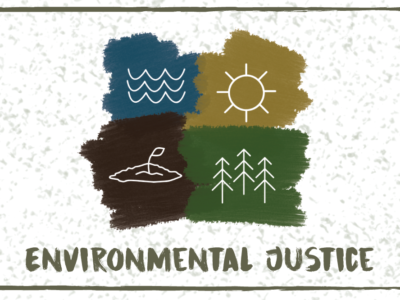economics
U.S. Supreme Court Declines to Revive Challenge to Oregon Clean Fuels Program
Legal Challenges to Oregon & California Vehicle Fuel Carbon-Intensity Standards Close to the End of the Line, Clearing Path Forward to Transformative Reductions in Greenhouse Gas Emissions from Transportation Sector
In this post, we continue our discussion of California’s Low-Carbon Fuel Standard (LCFS), which we introduced in our post on October 4, 2018. This is third in that series. This past Monday, the U.S. Supreme Court denied review of a federal appeals court decision upholding the legality of Oregon’s Clean Fuels Program. That decision finally frees …
Continue reading “U.S. Supreme Court Declines to Revive Challenge to Oregon Clean Fuels Program”
CONTINUE READINGWhat Do We Know About Environmental Justice?
Not As Much As We Should
If you are not a regular reader of the Journal of Economic Perspectives, you should be. Most economists fetishize what my friend and colleague Steve Bainbridge refers to accurately as “recreational mathematics.” But often, these models add more heat than light, and in any event, function as a private language. Fortunately enough, JEP’s magician-editor Timothy …
Continue reading “What Do We Know About Environmental Justice?”
CONTINUE READINGMajor Policy Attacks on California’s Low Carbon Fuel Standard and Why They’re Off-Target
Second in a Series About California’s Low Carbon Fuel Standard Program
[Post co-authored by Ted Parson and Sean Hecht] In this post, we continue our discussion of California’s Low-Carbon Fuel Standard (LCFS), which we introduced in our post on October 4, 2018. Because it’s a prominent and ambitious policy that will reduce California’s reliance on petroleum-based transport fuels, it is unsurprising the Low-Carbon Fuel Standard has …
CONTINUE READINGThe Triumph of the Commons
Elinor Ostrom was awarded the Nobel Prize in Economics today, along with Oliver Williamson here at Berkeley. To understand why her work is relevant to environmental law, you have to first know about the “tragedy of the commons.” Many medieval and early modern villages had a “commons” where all of the peasants were entitled to …
Continue reading “The Triumph of the Commons”
CONTINUE READINGCass Sunstein Confirmed by Senate
To the dismay of some environmentalists, the Senate confirmed Cass Sunstein as “regulatory czar” today. An undeniably brilliant scholar, Sunstein is a long-time advocate of cost-benefit analysis as a check on overly zealous risk regulation. (Unfortunately, his views of regulation figured much less in the public debate than a frenzied campaign to mobilize hunters, gun …
Continue reading “Cass Sunstein Confirmed by Senate”
CONTINUE READINGEnvironmental Economics at EPA
EPA’s Science Advisory Board is considering feedback to EPA’s 2008 draft guidelines on economic analysis. The preliminary SAB draft makes a number of interesting points: EPA needs to recongize that it’s discretion is limited: “only the legislative branch has the power to tax, subsidize, or assign liability, and both the Clean Water Act and the …
Continue reading “Environmental Economics at EPA”
CONTINUE READINGEnvironmental Hypocrisy
Recently, CBS’s 60 Minutes ran a story on the current environmental damages litigation 30,000 Ecuadorians are bringing in that country’s courts against Chevron. The case arises out the toxic oil wastes a Chevron subsidiary left behind in the Ecuadorian rain forest following decades of oil production deep in the headwaters of the Amazon. The plaintiffs, …
Continue reading “Environmental Hypocrisy”
CONTINUE READINGA New Website on Climate Economics
Real Climate Economics offers a wealth of information from a pro-regulatory perspective: The Real Climate Economics website offers a reader’s guide to the real economics of climate change, an emerging body of scholarship that is consistent with the urgency of the problem as seen from a climate science perspective. As the climate policy debate intensifies, …
Continue reading “A New Website on Climate Economics”
CONTINUE READING




